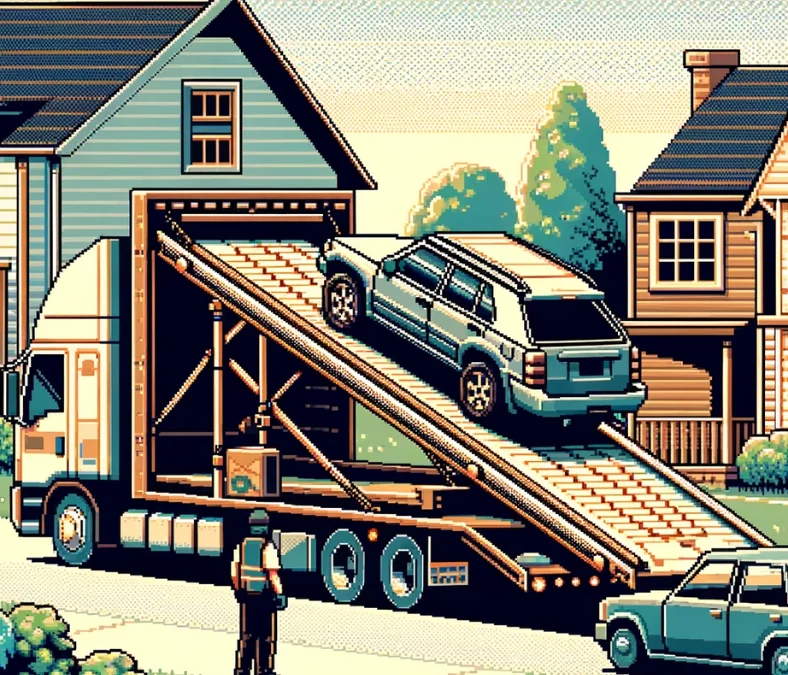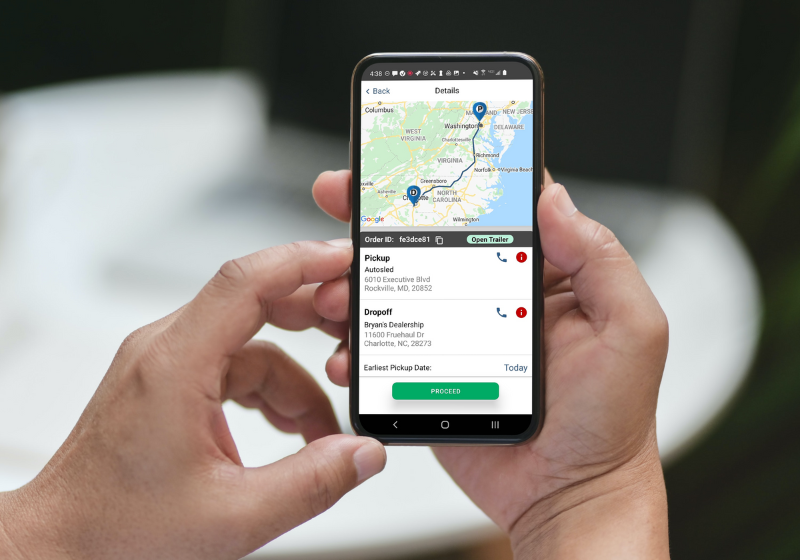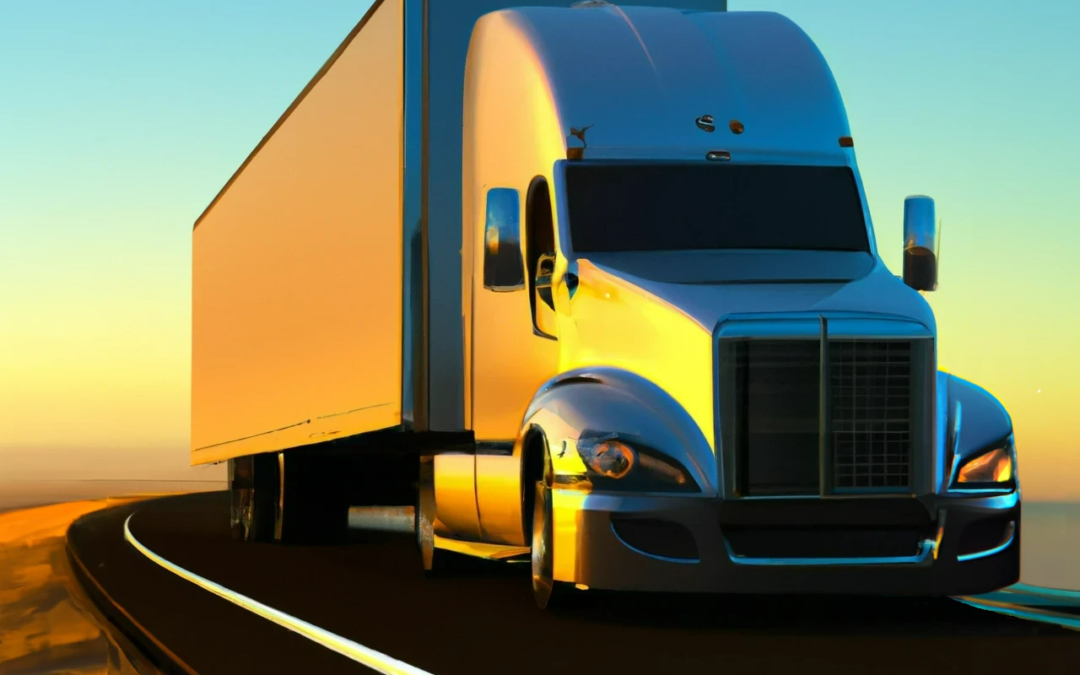
by Mike Buerger
ROCKVILLE, MD – Autosled, leading provider of digital technology solutions for vehicle transport logistics, announced today the launch of Autosled Direct, a direct to customer vehicle transport service. This extension of the company’s existing B2B vehicle shipment service is rolling out initially to retail automotive dealers who no longer wish to be involved in the transport logistics processes of their customers before being offered to the general public.
“In an era where online convenience is growing more pertinent, consumers continue to buy vehicles from farther away. This is why we’ve taken our dealer-facing platform and created a more streamlined, transparent way for anyone to ship a car”, said David Sperau, Co-Founder and Chief Revenue Officer of Autosled. “Our Autosled Direct program is perfect for retail automotive dealerships that want fast shipping and exceptional customer service, without the hassle of managing logistics details. Our tech keeps customers updated, while our support team is available to help consumers with each move. This way, dealerships can focus on what they do best – selling cars, while Autosled makes sure that every vehicle is handled with excellence and customers are satisfied”.
Autosled Direct enables retail dealerships nationwide to turn over their customers’ individual vehicle transport requests to the nation’s trusted expedited carrier with 24/7 dealer support. Created by former third-generation dealers as an answer to their own vehicle logistics problems, Autosled continues to maintain no subscription fees or monthly contracts for either dealers or consumers. In addition to a vetted transporter network of over 11,000 nationwide transporters, Autosled also holds its own $5 million umbrella insurance policy- protecting shippers from coast to coast.
“I used Autosled Direct to transport my new car purchase from South Carolina to Colorado”, said Jennifer Suzuki, Founder and CEO of eDealer Solutions. “Autosled’s team took away all of the stress of moving my car. I didn’t have to make calls, get quotes or worry about a single thing! It was quick, easy and awesome! Painless transportation!”
As a special during NADA 2024 only, Autosled is offering first-time shippers that complete a demo at Booth# 4213 a free vehicle move up to 500 miles in the month of February. Any dealers wishing to complete a demo or begin transitioning their customer vehicle transport process over to Autosled, can register at: https://autosled.com/nada-2024/.
About Autosled
Autosled provides seamless digital vehicle shipment options for dealers, transporters, auctioneers, brokers, and individuals. As a tech-first company, Autosled’s web and phone platforms create a marketplace between shippers and transporters that are faster, cheaper, and more reliable. Services include custom price quotes, secure online payments, electronic accounting and invoicing, online vehicle shipment scheduling, verified transporter insurance and a vetted network. Vehicles delivered through Autosled are trackable, with real-time GPS and communication with transporters throughout the process. For more information, visit: www.autosled.com.
For Media Inquiries, contact:
Peyton Hoffman
CP Consulting Group
(757) 748-4533 (cell)
peyton.hoffman@autosled.com

by Mike Buerger
In an industry as dynamic as vehicle transport, flexibility and control are highly valued assets. One way that transporters can significantly increase control over their operations is by dispatching their own loads. This approach, also known as self-dispatching, enables drivers and transport owners to put their futures directly into their own hands. The top five benefits of using self-dispatch are:
1. Route Optimization
In the simplest terms, getting the most out of every mile is really what determines whether a logistics company is successful or not. The ability to see nearby loads in real-time, and claim them on the fly, directly reduces the amount of time that drivers spend deadheading. The lower the amount of time deadheading, the higher the efficiency and profit for each transport.
2. Increased Earning Potential
Self-dispatching not only presents the potential for increased earnings through optimization, but by selecting their own loads, truckers can target shipments that offer the best rates. They can also choose to take on higher-paying, expedited loads. Cutting out extra dispatching labor costs also boosts the bottomline.
3. Schedule Flexibility
When a trucker is in charge of his or her own dispatching, the schedule can be arranged to better suit one’s personal or family life. This could mean planning loads around a child’s school schedule, a spouse’s work hours, or even significant events like birthdays or anniversaries. With self-dispatching, truckers can balance their work-life schedule better, reducing stress and increasing job satisfaction.
4. Building Direct Relationships
Self-dispatching allows truckers the ability to build direct relationships with shippers and brokers. This can lead to more consistent repeat business and potentially increased rates, both of which can significantly improve the bottom line.
5. Skill Development
Lastly, self-dispatching can result in skill development. Managing one’s own dispatching requires learning about market rates, logistics planning and more. These skills are invaluable, not just in the immediate context of dispatching, but also in broader business and career development.
Without a doubt, finding non-driving time to dispatch loads on the road is difficult, but the advantages created by self-dispatching make it well worth the effort. It’s important to remember that successful self-dispatching requires a good understanding of the market, strong planning skills, and a willingness to take on the challenges of running one’s own business.
Autosled is a vehicle transport technology platform that allows car-haulers to grab available loads on the go. Self-dispatching significantly improves the profitability of small and large businesses alike. Autosled is thrilled to continue to offer this capability to its nationwide transporter network of over 11,000 haulers.
If you aren’t already using Autosled, register and get started today!
Check out other recent articles:

by Mike Buerger
Q and A: Featuring Dan Sperau
Dan Sperau is a 3rd generation automotive enthusiast. His grandfather was an employee of Henry Ford, while his father owned a Ford Dealership in Alabama. Following his college education, Dan swiftly immersed himself into the retail automotive industry. After his time in retail, he spent 12 years financially consulting dealership groups, specifically around incentive and recovery audits. He co-founded Autosled in 2018, along with his brother David. We asked him a few questions about his experiences, and here is what he had to say:
Your automotive background is finance-centric. Did you ever think you would get involved in the transportation and logistics side of the business? How has your background influenced your approach to Autosled’s operations?
“No, I never thought I would get involved in the logistics side of things. However, the concept of Autosled just made too much sense to ignore. Micromanaging vehicle transportation creates so much paperwork behind the scenes for every dealership. Auto groups that deal with hundreds of transporters, 1099’s, and thousands of checks a year have to hire a small team just to handle it. Autosled evolved as a solution to these challenges, offering efficiency that individuals with backgrounds similar to mine can genuinely value.”
What was the deciding factor in your commitment to co-founding Autosled?
“My brother, David – who spent 25 years in retail, was the driving force. The frontline dealers who are actually handling the shipments, run into their own host of problems. All of the dealer and financial pain points are interconnected. The opportunity to create a uniform experience that could handle everything all at once was exciting.”
Starting a new company is a tremendous risk, and there are always doubts. Do you remember a single moment when you realized that it was going to work?
“Yes, it was in December of 2020. We had built the MVP software (minimum viable product) and had been moving cars since July of that year. But that December, the first self-dispatched load occurred. Seeing it go through the system without any prompting or manual intervention was almost surreal. I looked at Dave and said, “Did that just happen?” That was the “ah-ha moment” when we knew it was going to work. Self-dispatching is a force multiplier for us. It allows our small team to be able to handle a large amount of work. Just over two years later, over 85% of our loads are self-dispatched, so that’s been a huge win for us.”
You mentioned the self-dispatching capability. Autosled’s carrier network has over 11,000 transporters. How do you tackle communicating with so many transporters across the country?
“It all starts with our operations team. Autosled’s app evolved to make life easier for transporters, and our team is here to support them. From the start of the onboarding process, we educate our transporters on the capabilities of Autosled’s technology. Things like self-dispatch and 2-day quick pay are huge competitive advantages when used effectively. It helps that our staff speaks six different languages as well. Having a staff that is fluent in the same languages as our transporters removes as many barriers as possible. We’re just trying to make everything smoother and better for them, period.”
What future challenges will the car-hauling and retail vehicle logistics side of the industry face and how can Autosled help address those issues?
“The increase of online sales to meet customer expectations is going to continue. Traditional hub and spoke style models will become more fractured than they already are. While this makes it harder for small transport businesses, it is especially challenging for companies running large fleets. The role that Autosled can play is to provide the tools, such as a self-dispatching load board and digital bills of lading, for these companies to be more flexible in order to navigate the changing markets.”
Autosled went from two brothers with an idea to a company with over 50 employees in a relatively short time. What advice would you give to other Entrepreneurs who may be following a similar path?
“Without risk, there is no reward. Your company is your baby and it’s scary to put it in other people’s hands, because you think you always know best. That is why it is so important to surround yourself with the right people. It’s what they do that brings our vision to life. It’s not just David and I. Trust me, I’ve learned more from my people than they have from me. Our company culture is built like a family; we care about everyone. As a founder, without good people to support you and strong company culture, you’re toast.”
Check out other recent articles:

by Mike Buerger
AI at the Wheel Series
Written by ChatGPT, Administered by Michael Buerger
The trucking industry has been an essential component of the global economy for decades, ensuring the smooth transportation of goods and materials across vast distances. As technology evolves and the world becomes more interconnected, the future of trucking is poised for significant transformation. This article explores the latest trends and innovations that are shaping the future of this vital sector, with a focus on improved efficiency, safety, and sustainability.
- Electrification and Alternative Fuels
To meet increasingly stringent emissions standards and contribute to a greener planet, the trucking industry is shifting towards electric and alternative-fuel vehicles. Companies like Tesla, Nikola, and Volvo are leading the charge with the development of electric semi-trucks that boast impressive range, performance, and efficiency. Additionally, hydrogen fuel cell technology and natural gas-powered trucks are gaining traction as alternative options for a cleaner future.
- Autonomous Trucking
Self-driving technology is no longer a futuristic concept; it is rapidly becoming a reality. As autonomous vehicle development accelerates, the trucking industry is set to experience significant disruption. Autonomous trucks offer the potential for reduced labor costs, increased safety, and improved fuel efficiency. Companies like Waymo and TuSimple are at the forefront of this revolution, conducting extensive testing and refining their technology for large-scale deployment.
- Connectivity and the Internet of Things (IoT)
The Internet of Things (IoT) is revolutionizing various industries, and trucking is no exception. Connected devices and telematics systems allow for real-time monitoring of vehicle health, location, and performance. This level of connectivity enables predictive maintenance, optimized routing, and increased operational efficiency. Furthermore, IoT-powered communication between trucks, known as platooning, can lead to reduced fuel consumption and improved safety by synchronizing acceleration, braking, and spacing.
- Advanced Driver-Assistance Systems (ADAS)
Advanced driver-assistance systems (ADAS) are enhancing safety and efficiency in the trucking industry. These systems use cameras, sensors, and radar technology to monitor the vehicle’s surroundings and provide real-time feedback to drivers. ADAS features include adaptive cruise control, lane departure warnings, collision avoidance systems, and blind-spot monitoring. These technologies not only reduce the risk of accidents but also contribute to a more comfortable driving experience.
- Blockchain and Smart Contracts
Blockchain technology is transforming the way the trucking industry handles logistics and operations. By creating a decentralized and transparent ledger of transactions, blockchain streamlines the supply chain, reduces paperwork, and increases trust between parties. Smart contracts, powered by blockchain, can automate and secure payments, eliminating the need for intermediaries and reducing transaction costs.
- Workforce Training and Adaptation
As the trucking industry adopts new technologies, the workforce must adapt accordingly. Companies will need to invest in continuous training and education to ensure their employees have the necessary skills to navigate this evolving landscape. In addition to technical knowledge, soft skills like adaptability, problem-solving, and collaboration will be crucial for success in the future of trucking.
The future of trucking is undoubtedly exciting, with a host of innovations promising increased efficiency, safety, and sustainability. As the industry embraces these new technologies, it will continue to play a vital role in the global economy. By staying informed about these trends and adapting to the changes, companies and individuals can ensure their place in the dynamic and evolving world of trucking.
Human Thoughts:
This is a great list that the AI came up with. Electrification and alternative fuels seem poised to make their mark on the future of trucking in a big way, and soon. Autosled is big proponent of sustainable trucking and we’re excited to see the technologies that will positively transform the industry for future generations.
Autonomous trucking is an interesting trend, with examples of it being tested in real world environments. Long hauls specifically could see some implementation in the coming years. However, we do not see this tech taking over local or last-mile deliveries any time soon.
If your company hauls cars and wants an capability boost, Autosled’s tech allows you to easily manage loads and optimize your routes without any robotic truck drivers! Register today and start self-dispatching loads that work for you!

by Mike Buerger
AI at the Wheel Series
Written by ChatGPT, Administered by Michael Buerger
The trucking industry is a vital component of the global economy, moving goods and products from one place to another. Dispatchers play a crucial role in ensuring that this process runs smoothly. As a dispatcher, you are responsible for coordinating the movement of trucks, drivers, and cargo, all while maintaining communication with clients, carriers, and other stakeholders. In this article, we will explore what it takes to be successful as a dispatcher in the trucking industry, with a focus on the car hauling sector.
- Strong communication skills: As a dispatcher, you will be the main point of contact between the driver and the client. It is crucial that you have excellent communication skills, both verbal and written. You will need to be able to communicate effectively with drivers, clients, carriers, and other stakeholders. In the car hauling sector, communication is especially important as the transport of vehicles requires specific handling and care.
- Attention to detail: Dispatchers need to be highly organized and detail-oriented. You will need to keep track of multiple shipments, schedules, and deadlines, and ensure that everything runs smoothly. In the car hauling sector, you must pay attention to specific details such as the make and model of the vehicles, the required equipment for transport, and any special handling instructions.
- Time management skills: Dispatchers need to be skilled at managing their time effectively. You will need to be able to prioritize tasks, manage multiple schedules, and ensure that drivers are on time for pick-ups and deliveries. In the car hauling sector, timing is especially crucial as clients may require their vehicles to be delivered by a specific date and time.
- Knowledge of regulations and compliance: Dispatchers need to be familiar with regulations and compliance issues in the trucking industry. This includes understanding laws and regulations related to the transport of hazardous materials, weight restrictions, and other industry-specific rules. In the car hauling sector, dispatchers must be aware of regulations regarding the transport of vehicles, such as the number of vehicles that can be transported on a single truck and the specific requirements for securing and transporting vehicles.
- Ability to handle stressful situations: Dispatchers need to be able to handle stressful situations, such as unexpected delays, accidents, or breakdowns. In the car hauling sector, this can be especially challenging as any damage to the vehicles being transported can result in significant financial losses.
In conclusion, being a successful dispatcher in the trucking industry requires a combination of strong communication skills, attention to detail, time management skills, knowledge of regulations and compliance, and the ability to handle stressful situations. In the car hauling sector, these skills are even more critical as specific handling and care are required for the transport of vehicles. By developing these skills, dispatchers can ensure that the movement of goods and products runs smoothly, contributing to the success of the industry as a whole.
Human Thoughts:
Although I’m not convinced that AI understands the nuances in dispatching, it’s hard to argue with this list. Communication rightfully belongs in the top spot because it is vital throughout the entire transport process. Many issues can be avoided with simple communication and oftentimes when issues do arise, clients can be understanding as long as they aren’t kept in the dark. One thing I would add (that this machine unsurprisingly forgot to mention) is people skills. Having a positive attitude and treating both drivers and clients with respect can go a long way!
If you’re a dispatcher in the car-hauling sector and haven’t tried Autosled, it’s never too late. Access to our load board is completely free, while our tools allow you to self-dispatch available loads and assign them to drivers in seconds. When drivers use our app for BOL inspections, payment is directly deposited in your account in 2 business days – with no fees. Autosled is here to make life easier – join our community today!




